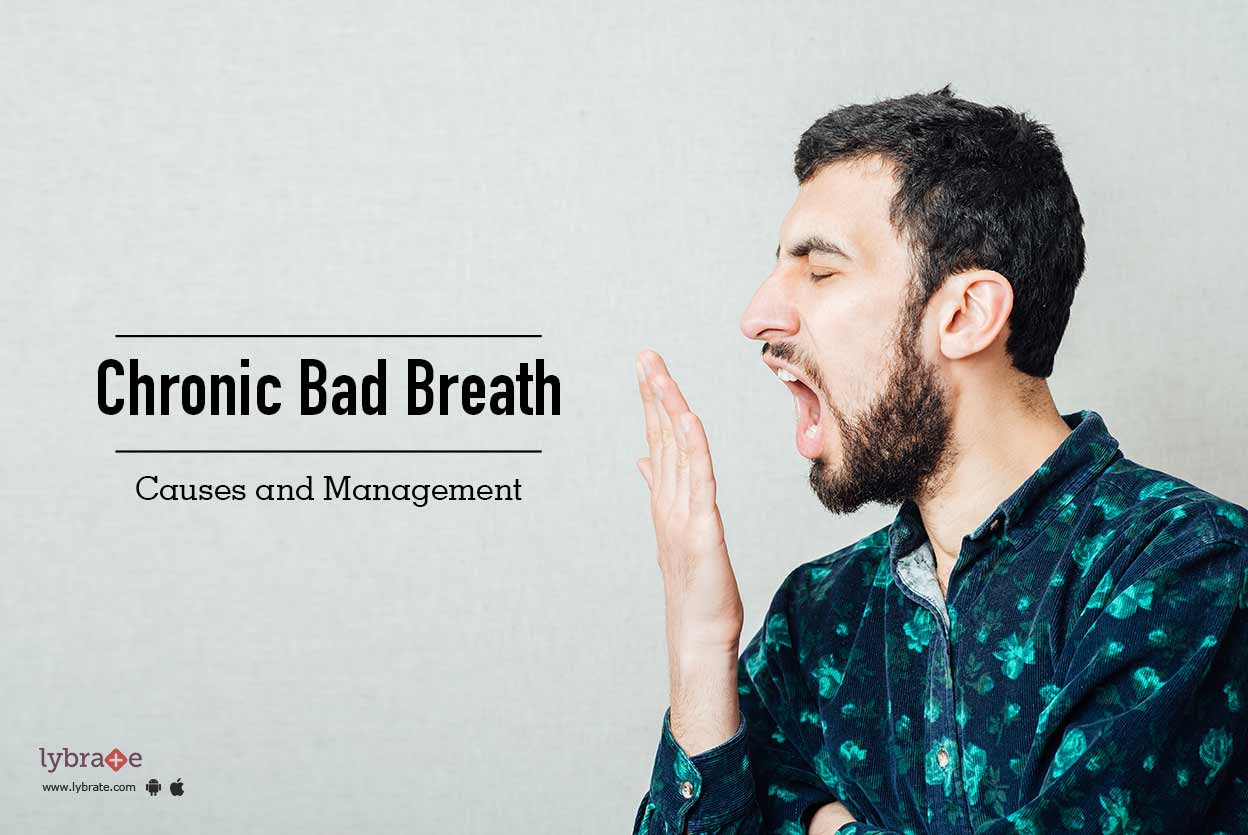Chronic Bad Breath - Causes and Management:

One thing that can put away talking to someone very interesting is bad breath. And it is not an uncommon problem. While most just try to use mouth wash and chewing gums to keep it away, it is important to note that bad breath can be a sign of underlying causes, both in the mouth and the body as a whole.
Identifying the reason can help in early diagnosis and prompt treatment of the actual disease condition.
There could be oral and general causes for bad breath or halitosis as it is medically called. Food habits and other lifestyle habits including smoking can also lead to bad breath.
Oral causes:
Others:
Identifying the reason can help in early diagnosis and prompt treatment of the actual disease condition.
There could be oral and general causes for bad breath or halitosis as it is medically called. Food habits and other lifestyle habits including smoking can also lead to bad breath.
Oral causes:
- Presence of food debris in a moist environment (saliva) is ideal for the oral bacteria to act on the food particles and break them down. This causes a bad breath, when it leads to plaque formation and it then calcifies into a hardened substance called calculus. Plaque and calculus are the main ingredients for tooth decay and periodontal disease.
- Severe tooth decay leads to bad breath as does periodontal infections. In severe cases, there could even be abscess formation in the root area of the tooth with pus formation
- Unclean dentures are another source of halitosis. There could be food lodged in between teeth or the undersurface of the denture, leading to bad breath.
- Dry mouth or xerostomia - Certain diseases and drugs can lead to dry mouth with reduced amounts of saliva. Saliva has a natural flushing effect on the bacteria, and in its absence, the bacteria thrive, leading to a bad odour.
Others:
- Long-term smoking and/or chewing tobacco and alcohol are also reasons for bad breath.
- Crash diets: People on low-carb diets can have a bad breath, owing to burning of the fat and producing ketones, which have a strong smell.
- Medications: Nitrates to reduce angina, chemotherapy agents for cancer, phenothiazines for anxiety can all lead to bad breath. They reduce saliva and/or release chemicals causing bad breath.
- Start with oral hygiene check, and if there is decay or gum disease, consider restorations and cleaning.
- Mouth rinses can be used in the maintenance phase.
- Cessation of tobacco use should be considered.
- General health conditions like GERD should be managed
- Artificial saliva in cases of xerostomia
- Alternative medications if they are causing the bad breath
No comments:
Post a Comment